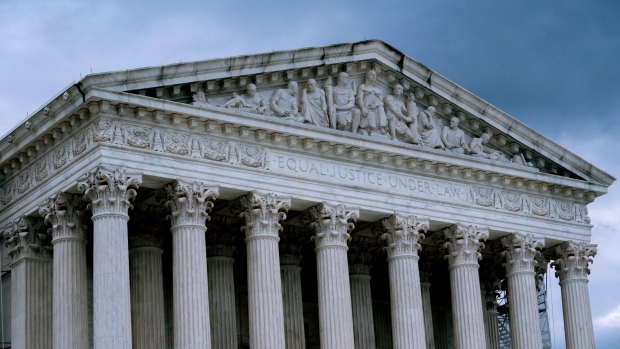Jun 28, 2024
Bedrock Wall Street Rules Threatened by Supreme Court Ruling
, Bloomberg News

(Bloomberg) -- Wall Street is poised to win more battles with the US Securities and Exchange Commission after the Supreme Court weakened a decades-old legal doctrine that gave federal agencies expansive leeway to interpret the law.
The high court’s 6-3 decision may turbocharge challenges to the agency’s efforts on everything from crypto to insider trading. The new limits add to a string of court setbacks for Chair Gary Gensler as the SEC moves to implement some of the most comprehensive — and controversial — regulations in decades.
Although the regulator is just one of dozens affected by the rollback of the so-called Chevron deference, it’s by far the most important to Wall Street. The doctrine stems from the 40-year-old Chevron v. Natural Resources Defense Council ruling and the case the Supreme Court just ruled on to weaken it didn’t specifically involve financial regulation.
Why So Much Rides on Supreme Court’s ‘Chevron’ Ruling: QuickTake
“This is a sea change,” Gordon Todd, a partner at Sidley Austin, said after the decision was announced on Friday. He said that even though regulators have stopped relying completely on that 1984 opinion, “most federal agencies have Chevron baked either implicitly or explicitly into their regulations and rulemaking process.”
Less discretion for agencies could hit the SEC particularly hard because the agency interprets and applies old laws, said Ty Gellasch, executive director of the Healthy Markets Association, an investor trade group. Even before the decision, the regulator faced increasingly critical courts, he said in an interview before the opinion.
“Losing deference from the courts cripples the ability of the SEC to oversee the rapidly changing markets,” said Gellasch, adding that Congress is unlikely to fill the void. “Changing the law is too slow, too hard and too skewed toward those with the money to effectively police the markets.”
Crypto and Climate
The SEC’s closely watched enforcement case against crypto giant Coinbase Global Inc. was highlighted as an example in a recent report by Bloomberg Intelligence on the potential effects of a high-court ruling to weaken Chevron deference.
Ahead of the ruling, legal experts also pointed to new SEC climate reporting rules for public companies as among those that could be most vulnerable. The regulator stayed the rule in April amid a spate of court challenges and it is also being appealed in federal court.
Meanwhile, the path for resuscitating the SEC’s rules requiring hedge funds to detail more fees and expenses to investors could also be more difficult. A federal appeals court in New Orleans recently vacated those regulations in June, saying that the agency “exceeded its statutory authority.”
The SEC’s Rule 10b5-1, a regulation to protect against insider trading, has also benefited from Chevron deference, David Petron, a partner at Sidley Austin, said in a January presentation.
“Overruling Chevron straightaway affects every administrative agency out there. Period. Full stop,” he said Friday. However, Petron said that a Supreme Court decision earlier this week curbing the SEC’s ability to use in-house judges is an even bigger deal for the regulator.
--With assistance from Greg Stohr.
(Updates with lawyer comment in final paragraph.)
©2024 Bloomberg L.P.





